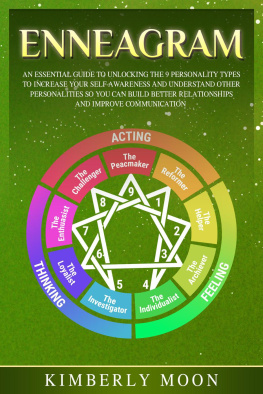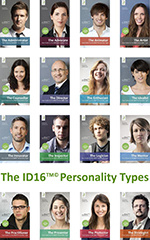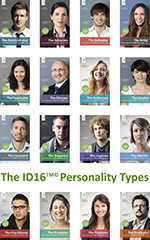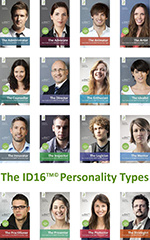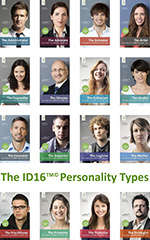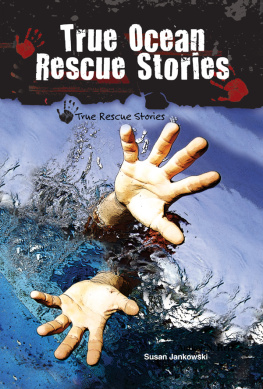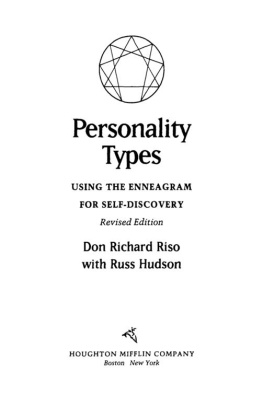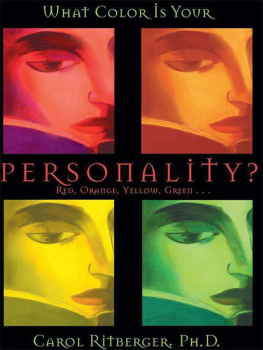Jankowski - Why Are We So Different?: Your Guide to the 16 Personality Types
Here you can read online Jankowski - Why Are We So Different?: Your Guide to the 16 Personality Types full text of the book (entire story) in english for free. Download pdf and epub, get meaning, cover and reviews about this ebook. year: 2015, publisher: LOGOS MEDIA, genre: Politics. Description of the work, (preface) as well as reviews are available. Best literature library LitArk.com created for fans of good reading and offers a wide selection of genres:
Romance novel
Science fiction
Adventure
Detective
Science
History
Home and family
Prose
Art
Politics
Computer
Non-fiction
Religion
Business
Children
Humor
Choose a favorite category and find really read worthwhile books. Enjoy immersion in the world of imagination, feel the emotions of the characters or learn something new for yourself, make an fascinating discovery.

Why Are We So Different?: Your Guide to the 16 Personality Types: summary, description and annotation
We offer to read an annotation, description, summary or preface (depends on what the author of the book "Why Are We So Different?: Your Guide to the 16 Personality Types" wrote himself). If you haven't found the necessary information about the book — write in the comments, we will try to find it.
Jankowski: author's other books
Who wrote Why Are We So Different?: Your Guide to the 16 Personality Types? Find out the surname, the name of the author of the book and a list of all author's works by series.
Why Are We So Different?: Your Guide to the 16 Personality Types — read online for free the complete book (whole text) full work
Below is the text of the book, divided by pages. System saving the place of the last page read, allows you to conveniently read the book "Why Are We So Different?: Your Guide to the 16 Personality Types" online for free, without having to search again every time where you left off. Put a bookmark, and you can go to the page where you finished reading at any time.
Font size:
Interval:
Bookmark:


JAROSLAW JANKOWSKI
M.Ed., EMBA

This is a book which can help you exploit your potential more fully, build healthy relationships with other people and make the right decisions about your education and career. However, it should not be considered to be a substitute for expert physiological or psychiatric consultation. Neither the author nor the publisher accept any responsibility whatsoever for any detrimental effects which may result from the inappropriate use of this book.
ID16TM is an independent typology developed by Polish educator and manager Jaroslaw Jankowski and grounded in Carl Gustav Jungs theory. It should not be confused with the personality typologies and tests proposed by other authors or offered by other institutions.
Original title: Czy wiesz, kim jeste? Przewodnik po 16 typach osobowoci ID16TM
Translated from the Polish by Caryl Swift
Proof reading: Lacrosse | experts in translation
Layout editing by Zbigniew Szalbot
Cover design by Jan Paluch
Cover photographs by Shutterstock
Published by LOGOS MEDIA
Jaroslaw Jankowski 2015
All rights reserved
Paperback: ISBN 978-83-7981-099-4
EPUB: ISBN 978-83-7981-100-7
MOBI: ISBN 978-83-7981-101-4
Ebook version: 1.4

An Author Campaign Facilitated by ALLi.
To my wife Iwona and my son Maciej, with love
It was with the dawn of history that thinkers, philosophers and common-or-garden observers of life first became interested in the phenomenon of the human personality. What intrigued them was the way that some people display a marked similarity in their behaviour and attitudes despite their very different life stories and often disparate upbringings.
Observing this, the thoughts of many turned to reflections upon types of personality. One of the fruits of these musings which remains popular to this day is the typology devised by Hippocrates. That remarkable doctor and thinker of ancient times distinguished four fundamental temperaments; the sanguine, the choleric, the phlegmatic and the melancholic. History has seen many another, equally interesting endeavour to identify and describe recurring personality types. Although some of those attempts may seem oversimplified when viewed from a contemporary perspective, they played an extraordinarily important role in their time, paving the way for subsequent, more extensive cogitations on the human personality.
The theory developed by Carl Gustav Jung (1875-1961), a Swiss psychiatrist and psychologist, came as a breakthrough in the field. It was instrumental in popularising the notion of personality types and, as of the twentieth century, it became the foundation both for the formulation of what is now known as Jungian typology and for creating personality tests grounded in that typology, the ID16TM test being a case in point .
Nowadays, personality typologies drawing on Jungs theory are widely used in teaching, training, coaching and human resource management, as well as in career and relationship counselling. They also form a basis for numerous programmes geared towards supporting personal development and improving interpersonal relationships. The majority of global businesses employ Jungian personality tests as a standard tool in their recruitment and vocational development processes. This practice was initially applied primarily in corporations of American origin; however, in recent years, it has been enjoying a steadily growing popularity in Europe as well.
Every year, thanks to Jungian personality tests, millions of people around the world are able to obtain a more profound knowledge of themselves and of others and, as a result, their lives and their relationships are changed for the better.
We sincerely hope that your exploration of personality types, with our ID16TM tools as your compass, will lead to positive transformations of exactly that kind.
More information on this topic can be found in the ID16TM and Jungian Personality Typology section.
ID16TM numbers among what are referred to as Jungian personality typologies, which draw on the theories developed by Carl Gustav Jung (1875-19161), a Swiss psychiatrist and psychologist and a pioneer of the depth psychology approach.
On the basis of many years of research and observation, Jung came to the conclusion that the differences in peoples attitudes and preferences are far from random. He developed a concept which is highly familiar to us today: the division of people into extroverts and introverts. In addition, he distinguished four personality functions, which form two opposing pairs: sensing-intuition and thinking-feeling. He also established that one function is dominant in each pair. He became convinced that each and every persons dominant functions are fixed and independent of external conditions and that, together, what they form is a personality type.
In 1938, two American psychiatrists, Horace Gray and Joseph Wheelwright, created the first personality test based on Jungs theories. It was designed to make it possible to determine the dominant functions within the three dimensions described by Jung, namely, extraversion-introversion , sensing-intuition and thinking-feeling . That first test became the inspiration for other researchers. In 1942, again in America, Isabel Briggs Myers and Katherine Briggs began using their own personality test, broadening Gray's and Wheelwrights classic, three-dimensional model to include a fourth: judging-perceiving . The majority of subsequent personality typologies and tests drawing on Jung's theories also take that fourth dimension into account. They include the American typology published by David W. Keirsey in 1978 and the personality test developed in the nineteen seventies by Aura Augustinaviit, a Lithuanian psychologist. Over the following decades, other European researchers followed in their footsteps, creating more four-dimensional personality typologies and tests for use in personal coaching and career counselling.
ID16TM figures among that group. An independent typology developed by Polish educator and manager Jaroslaw Jankowski, it was published in the first decade of the twenty-first century. ID16TM is based on Carl Jung's classic theory and, like other contemporary Jungian typologies, it follows a four-dimensional path, terming those dimensions the four natural inclinations . These inclinations are dichotomous in nature and the picture they provide gives us information regarding a persons personality type. Analysis of the first inclination is intended to determine the dominant source of life energy , this being either the exterior or the interior world. Analysis of the second inclination defines the dominant mode of assimilating information , which occurs via the senses or via intuition. Analysis of the third inclination supplies a description of the decision-making mode , where either mind or heart is dominant, while analysis of the fourth inclination produces a definition of the dominant
Next pageFont size:
Interval:
Bookmark:
Similar books «Why Are We So Different?: Your Guide to the 16 Personality Types»
Look at similar books to Why Are We So Different?: Your Guide to the 16 Personality Types. We have selected literature similar in name and meaning in the hope of providing readers with more options to find new, interesting, not yet read works.
Discussion, reviews of the book Why Are We So Different?: Your Guide to the 16 Personality Types and just readers' own opinions. Leave your comments, write what you think about the work, its meaning or the main characters. Specify what exactly you liked and what you didn't like, and why you think so.

